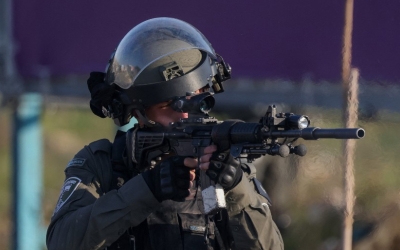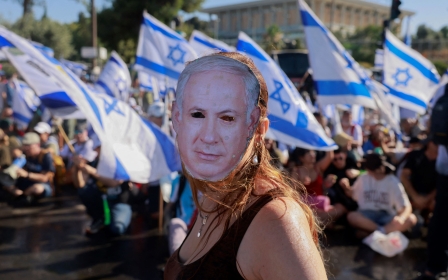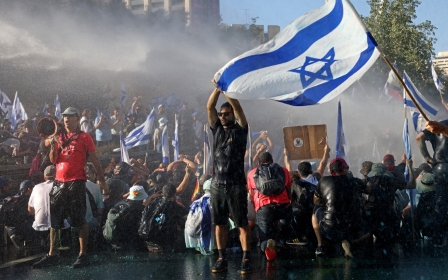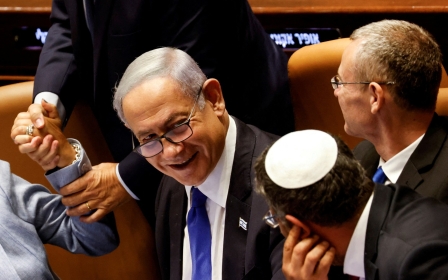Judicial crisis: An existential battle for Israel's future
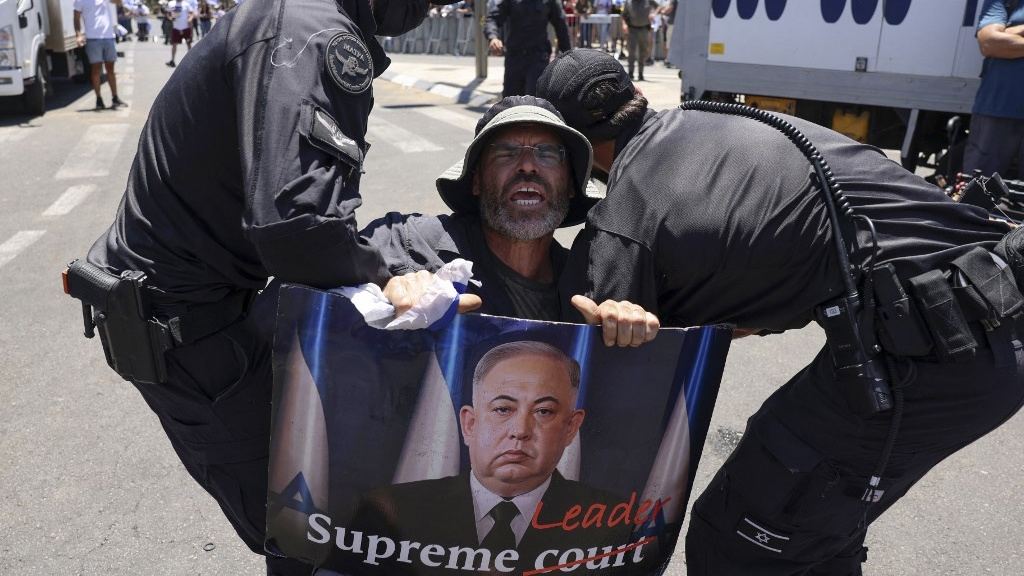
Israel is facing the most severe crisis in its history. The most extremist government ever elected has laid out a radical platform to, among other things, neuter the judiciary and transfer virtually all powers to the Knesset and prime minister. It would eliminate almost all checks and balances between the branches of government.
After the controversial legislation was passed this week, chaos ensued. Israelis, who had protested against the anti-democracy coup all year, raged against Prime Minister Benjamin Netanyahu’s government.
Before the vote, protesters attempted to block MKs from entering the Knesset. They withstood police water cannons and foul-smelling skunk water (normally reserved for restive Palestinian communities) fired directly at them. Some were beaten by police.
In recent days, major malls and hospitals have shut down. Doctors have gone on strike. Labour leaders threatened a general strike. The Tel Aviv stock exchange index dropped and the shekel plunged in value. Morgan Stanley downgraded Israel’s creditworthiness, and Moody’s warned of the deleterious effects of the new legislation on the overall economy.
The bellwether is the critical tech sector, which generates 15 percent of the country’s overall economic output and half of its exports. Around 70 percent of startups have taken steps towards moving some operations outside of Israel.
Capital in general has been fleeing the country for months, while 10,000 army reservists and 1,000 pilots announced they would refuse to serve. Former army, Mossad and Shin Bet chiefs have cast their lot with the pro-democracy camp.
The country is grinding to a halt.
Israel has faced major protests in the past, including a massive 1982 demonstration of 400,000 people after the Sabra and Shatila massacre in Lebanon. The Israeli government appointed a commission of inquiry, which sacked Ariel Sharon from his defence ministry portfolio.
In 1993, the Oslo Accords were signed, with the ultimate goal of creating a Palestinian state and ensuring the cessation of hostilities between Israel and the Palestinians. A powerful right-wing backlash ensued.
Protests for peace
Two years later, Peace Now sought to reinvigorate the peace process with an enormous rally in the heart of Tel Aviv. The main attraction was none other than the prime minister himself, Yitzhak Rabin.
The rally was, at the time, a profound expression of the Israeli desire for peace over war. But Rabin was assassinated that night by a settler extremist. Had he not died, the peace process might have succeeded and resulted in a resolution of the Palestine-Israel conflict.
In 2011, the J14 movement, a spontaneous grassroots social justice campaign, swept the streets of Israel. It was a revolt against the rapacious society Israel had become; a rebellion by young people who could no longer afford skyrocketing rents. Working-class Israelis could not afford to put food on the table, given massive price increases by profit-hungry food conglomerates.
Israelis believe this government intends to destroy what they view as Israeli democracy ... For them, this is an existential crisis
Starting with a single tent on a Tel Aviv boulevard, it mushroomed into tens of thousands who lived and protested for weeks there. Journalists reporting on the phenomenon, and the young people themselves, believed they were spearheading a revolution that would alter Israeli society, making it fairer and more just.
Instead, the politicians waited them out, certain that the momentum would sputter and die. Leaders promised they would change, and appointed committees to ensure the demands would be taken seriously. But nothing happened.
Each of the above social justice and peace movements arose from the Israeli left. But there have also been campaigns by the Israeli far right - and these have been far more successful. In 2005, Sharon, then the prime minister, announced a withdrawal from all Jewish settlements in Gaza. He did so without negotiating or consulting with either the Palestinian Authority or Hamas, the prevailing authority in Gaza. The operation turned into an utter disaster.
Not only did it not result in any progress towards peace with the Palestinians, but it also generated huge sympathy for the Israeli settlers. They played it for all it was worth. Imitating the East European colour revolutions, they adopted orange as their colour. Photographs of children crying and settlers on rooftops with soldiers climbing ladders to dislodge them flooded the pages of newspapers around the world.
The Gush Katif protests were masterful in a diabolical way. They set the stage for the current massive settlement enterprise. The national trauma resulting from the withdrawal overwhelmed whatever left-wing opposition existed.
Settler agenda
The settler activists of that era went on to leadership roles in far-right governments. They include Bezalel Smotrich, who was arrested by the Shin Bet in 2005, allegedly with a bomb in his car - formal charges were never brought. Today, he is Israel’s finance minister, with billions of shekels at his disposal to finance tens of thousands of new settlement housing units, in an effort to guarantee Jewish sovereignty over all the lands from the river to the sea.
The aforementioned campaigns each electrified the country at the times they unfolded, offering the impression that they would lead to radical change. But only the Gush Katif movement had the desired effect, transforming Israel into a settler state, where settlers control the levers of power. On the other hand, the peace and social justice campaigns promised much, but delivered little.
The current round of anti-government protests has permeated cities across the country and lasted all year. Unlike the left-wing protests described above, this movement is tenacious. Its agenda, unlike the others, is focused. It seeks to stop the “judicial reforms” and to overthrow the government.
If it is successful, there is no guarantee that the country will change. But if it fails, the demonstrators will have lost their country. Nothing focuses the mind like a citizen who fears losing his home and country. Citizens from all walks of life fear that all they cherish is on the line.
The pro-democracy movement immediately appealed to the Supreme Court against the anti-judicial law. The court could invalidate the law or approve it. The latter seems unlikely, since that would essentially deprive it of most of its powers. But if it rejects the law, the government will assert that it has removed the court’s power to review such laws, resulting in a crisis of legitimacy unlike any the country has ever faced.
This would put two branches of government in direct conflict, each claiming to be the proper authority. Most Israelis will side with the court, but they will have no power, except the streets, to force the issue. It will be a crapshoot.
Israelis believe this government intends to destroy what they view as Israeli democracy; that it is orchestrating a fascist coup and stealing the country from its citizens. For them, this is an existential crisis that can have only one outcome: victory. The messianic fanatics must be defeated, or all will be lost.
For this reason, this is a crisis like no other in the country’s history. Its outcome will determine whether Israel survives or becomes a theocratic dictatorship.
The views expressed in this article belong to the author and do not necessarily reflect the editorial policy of Middle East Eye.
Middle East Eye propose une couverture et une analyse indépendantes et incomparables du Moyen-Orient, de l’Afrique du Nord et d’autres régions du monde. Pour en savoir plus sur la reprise de ce contenu et les frais qui s’appliquent, veuillez remplir ce formulaire [en anglais]. Pour en savoir plus sur MEE, cliquez ici [en anglais].



